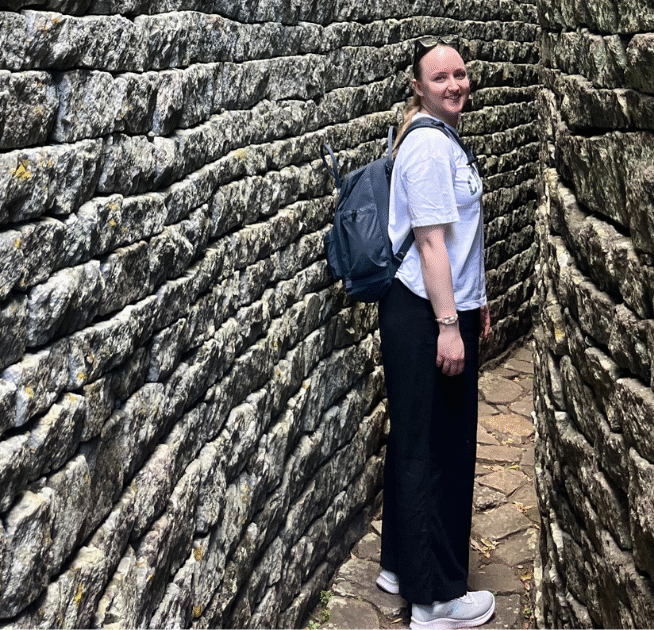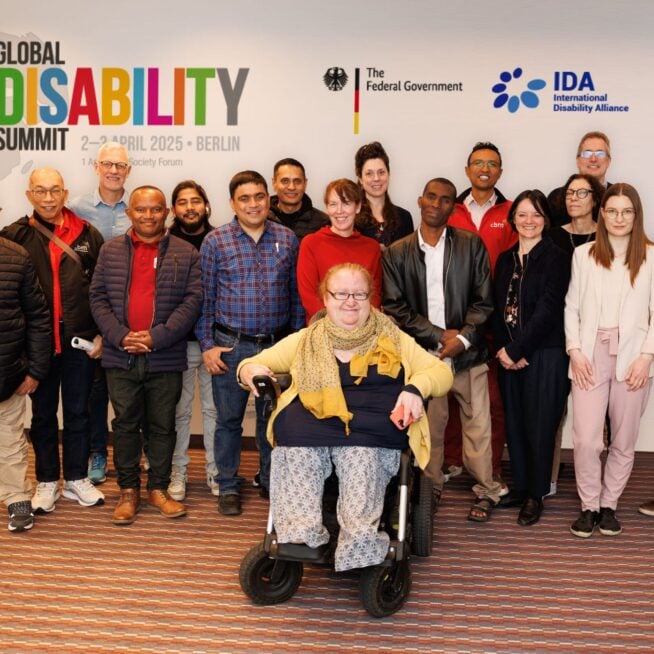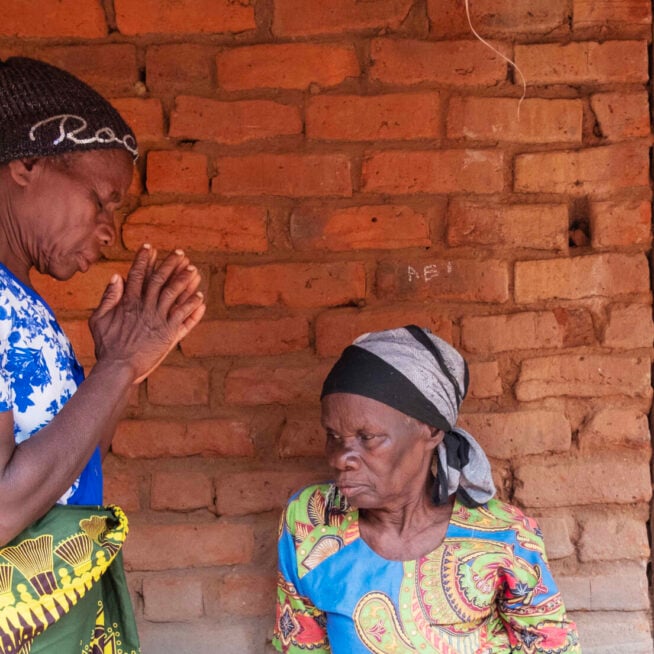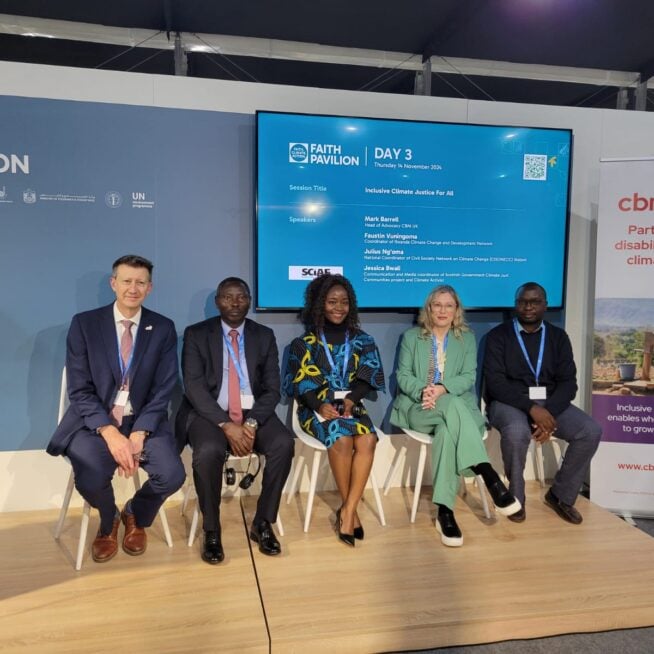Want to transform lives with us? Stay in touch and hear about our news, activities and appeals by email!
Inclusive Healthcare – working alongside communities in Nigeria
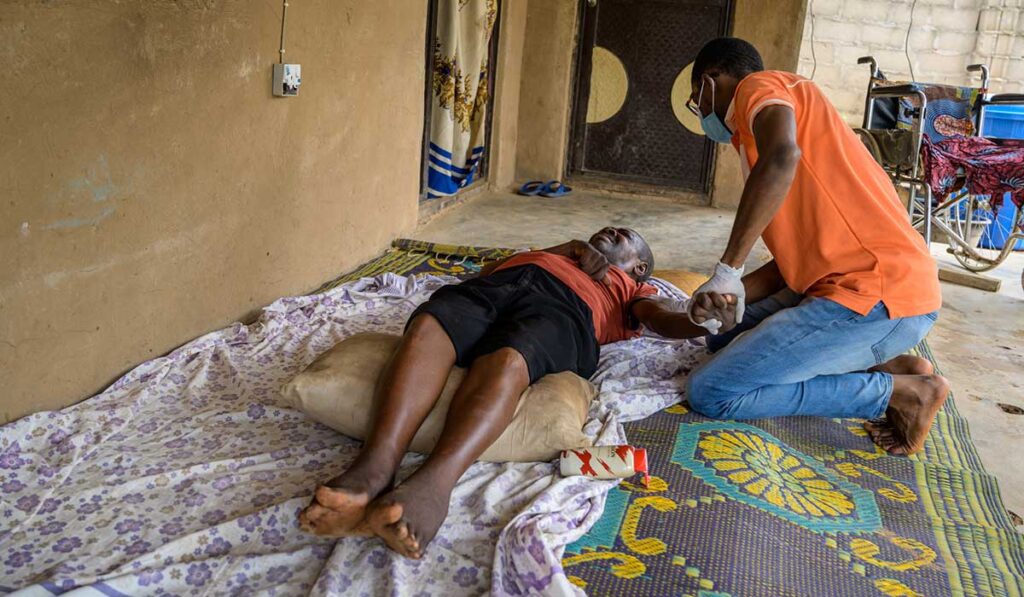
Since 2006, CBM has partnered with Elim Christian Vocational Training Centre – a community-based rehabilitation programme – to ensure people with disabilities in Nigeria have access their human rights.
This is the third in our 3-part blog series celebrating an amazing project and partnership between CBM and Elim. In this blog, we’re sharing stories about supporting people to access healthcare.
CBM and Elim have been providing rehabilitation services, such as physiotherapy and assistive devices, to people with disabilities in Nigeria – helping to improve and maintain people’s mobility and their ability to carry out day-to-day tasks and have the best possible quality of life.
Samuel
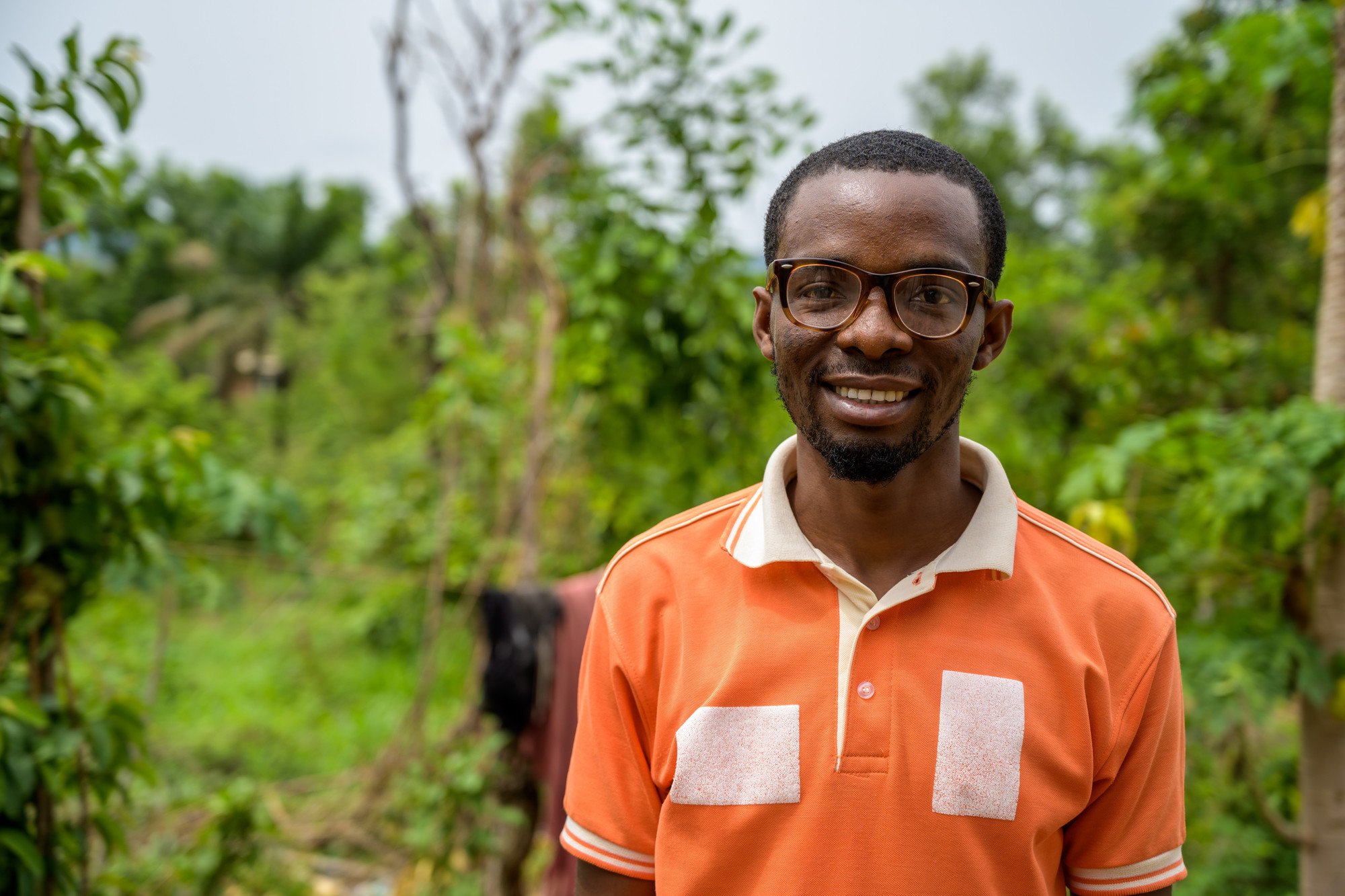
“I treat people both persons with disability and other pain causing conditions. I run two clinics in a weekday I have two clinic days here – on Tuesdays and Thursdays I am at the clinic centre, then the remaining days of the week, on Mondays, Wednesdays and Fridays I go to the field where we do rehabilitation services for persons with disabilities.”
Samuel has been working as a Physiotherapist for Elim for the past five years. The clients for the physiotherapy services include adults and children with a range of disabilities and health conditions. The most common conditions in children are cerebral palsy, spina bifida, developmental disorders, orthopaedic conditions, and neuromuscular disorders, while in adults those seen most often are neurological conditions such as stroke, spinal cord injuries, and traumatic brain injuries.
Samuel and the team face numerous challenges in offering services to clients in the Igede region, which has about 400,000 inhabitants spread over 235 villages. He attends to his patients in their homes because many cannot make regular visits to the Elim centre. He uses a motorcycle to reach people living in hard-to-reach locations.
“We do this because there are some persons with disabilities that may not be able to come to the clinic for treatment and the reason is the terrain is very bad. There is lack of mobility to convey them to the clinic centre to have adequate treatment so in that case I go to the field. I meet them in the field, at home. We create a good working environment where we can carry out rehabilitation services for them, for improved functional abilities and capacities also for independence.”
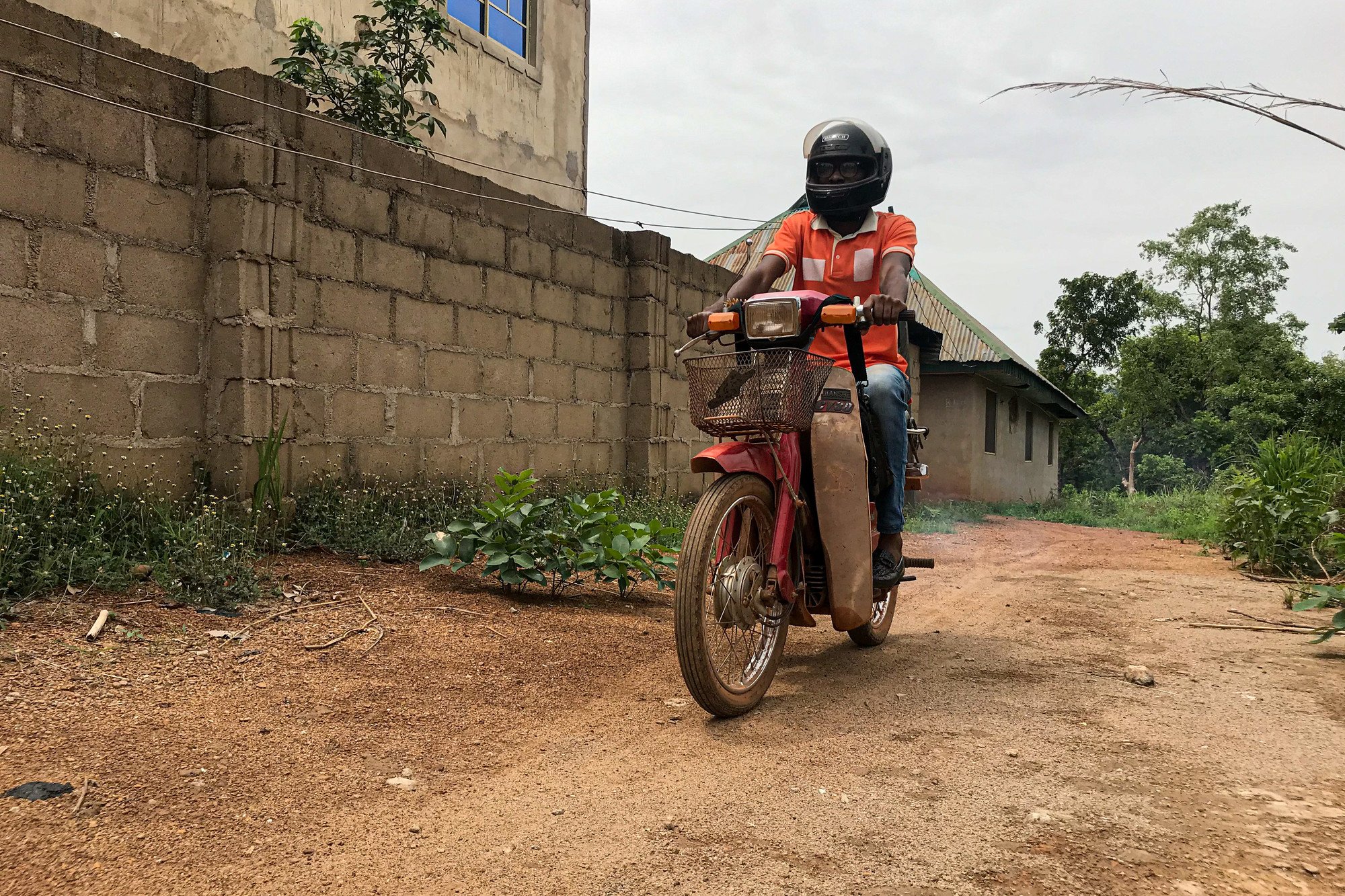
Samuel is also able to help families understand disability and challenge social stigma around disability, for example that it is caused by evil spirits, which the team often encounter in rural communities.
“At home we find out that the family of persons with disability may not really accept the services rendered because most of them believe in some cultural beliefs that disability is caused by evil spirits. We also try to enlighten the people and make them know that there are some medical conditions that can just come must of them can be hereditary and we try as much as possible to render education to the people so that to limit these cultural imposed beliefs.”
Paul
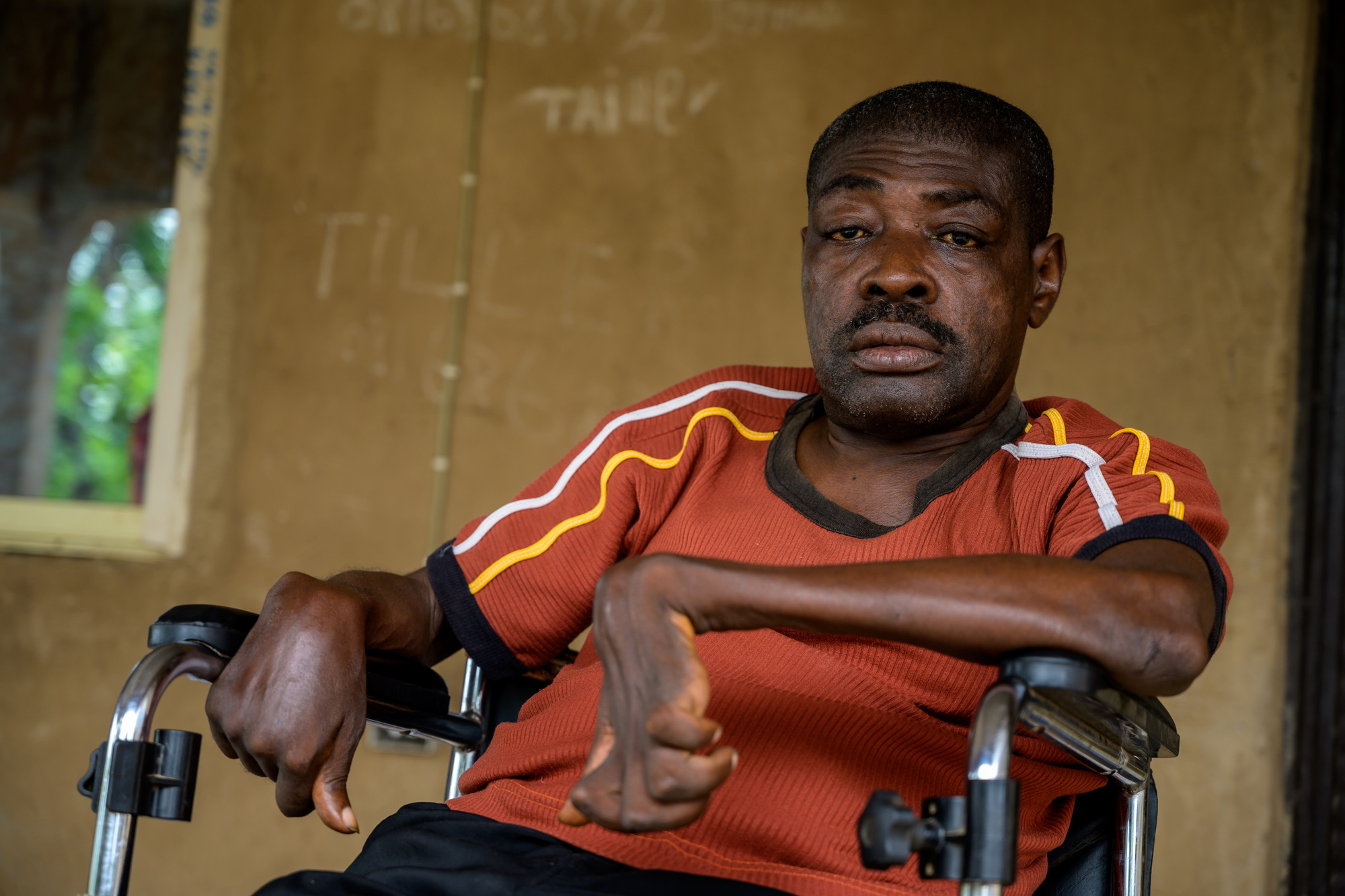
“It was Elim who gave me this wheelchair, it’s their help, and they normally check me every two weeks and give us some food. Since I cannot move anywhere, they helped me with a wheelchair. With the help of the wheelchair, I can go from one place to another but not very far away again.”
About two years ago, Paul was diagnosed with a disease that affected his spinal cord leading to quadriplegia: paralysis affecting his both arms and legs. He was a schoolteacher before the diagnosis but immediately lost his source of income, leaving his wife as the sole provider for himself and his three children.
Paul started taking medication to manage his condition, but Elim stepped in to provide practical support for the family such as providing food and a wheelchair to aid his mobility, and scheduling regular physiotherapy sessions to prevent the condition from worsening.
A physiotherapist from Elim visits Paul twice a week, helping him to exercise stiff muscles, massage numb and painful muscles and advice on how his family can help to manage the condition. The team would like Paul to have some sessions at the clinic, where there is more equipment and resources needed to give him, the best care needed, but as he can’t travel there they compensate with more frequent physiotherapy sessions at his home.
Images: 1st – Samuel doing a physiotherapy session with Paul, at Paul’s home. 2nd – Close up of Samuel, smiling and standing outside. 3rd – Samuel riding his motorbike, to visit patients at home. 4th – Paul sat outside his home.

